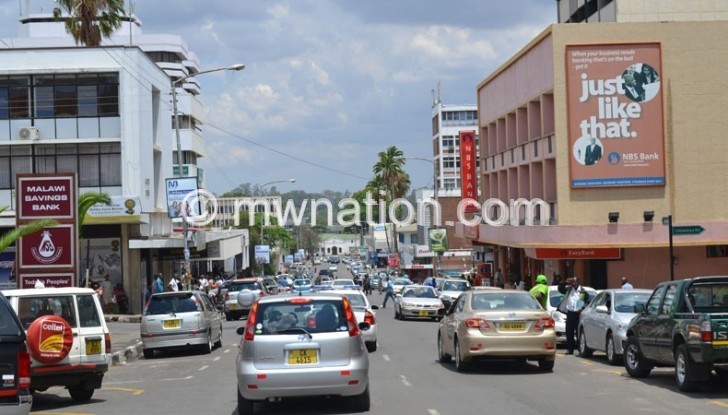Economic environment set to boost banking, telecoms sector
Malawi Stock Exchange (MSE)-listed stocks in the telecoms and banking sector are set for strong performance on the back of continued subscriber growth and economic outlook, local market watchers say.
But analysts have expressed optimism with caution, saying the risk for the bank going forward is the erosion of balance sheet capital base if earnings do not grow in real terms and do not match the currency depreciation.

An analysis of the MSE counters in various sectors by Cedar Capital Limited, a local investment advisory firm, says the banking and telecoms sectors are viable investment avenues that could offer good return for investment.
In its report issued on Monday, Cedar Capital Limited indicated that the banking sector is expected to do well this year owing to the expansionary monetary policy regime and higher inflation rate driven by currency depreciation.
The analysis shows that this will continue to drive deposit growth, which will be much cheaper in real terms.
It said banks are essentially not paying for deposits in real terms, but are earning marginally real returns on the assets funded by these deposits.
Reads the report in part: “Banks are essentially not paying for deposits in real terms with deposits rate at four percent against reference rate at 12 percent, but are earning marginally real returns on the assets funded by these deposits.”
The firm was, however, quick to mention that the risk going forward for all the banks is the erosion of the balance sheet capital base if earnings do not grow in real terms and do not match the currency depreciation.
The firm has also rated telecoms as another viable avenue for investment owing to expected continuation of networks and the subscriber base growth.
“At the same time, we expect the networks to optimise their tariff innovation or promotional package strategies to maintain margins,” said the firm.
Meanwhile, three out of the five listed counters in the banking sector that have published their trading statements for the year-ended December 31 2021are expected to post higher profits when compared to the previous year.
Similarly, the two firms in the telecoms sector, TNM plc and Airtel Malawi plc are also expecting to post higher profits.
National Bank of Malawi plc is expected its profit after-tax for the period ended December 2021 to be approximately 30 percent higher than the previous corresponding period.
This is will be a jump from K22.4 billion, which the bank posted in 2020.
On the other hand, NBS Bank plc also expects its profit after tax for the period ended December 31 2020 to be approximately 20 percent higher than the previous corresponding period. The bank’s profit for 2020 was K7.04 billion.
For FMB Capital Holdings plc, the parent company of First Capital Bank, it expects its profit after tax for the period ended December 31 2021 to be approximately 40 percent higher than the previous corresponding period.
In 2020, FMBCH posted a K9.94 billion profit after-tax.
Similarly, Airtel Malawi plc and TNM plc are expect their profits for the year ended December 31 2021 to be approximately 25 percent and 20 percent, higher respectively than the previous corresponding period.
In 2020, Airtel posted a K22.09 billion after tax profit while TNM’s after tax profits stood at K7.72 billion.
MSE operations manager Kelline Kanyangala said in an interview the market is poised to do well this year owing to the growth domestic product projections.
“The performance of the market is also influenced by how the economy performs and so we believe that if companies operate in an environment where they are growing and making profits, this will be reflected in share price movements,” she said.
Kanyangala while highlighting inflation and the Covid-19 pandemic as risks to the market, maintained that the market would perform well this year.
In 2021, MSE was bullish with the Malawi All Share Index—the overall measure of the local shares market performance— increasing by 40.05 percent year-on-year, to 45 367.68 points as at 31 December 2021 from 32 392.84 points as at 31 December 2020.





